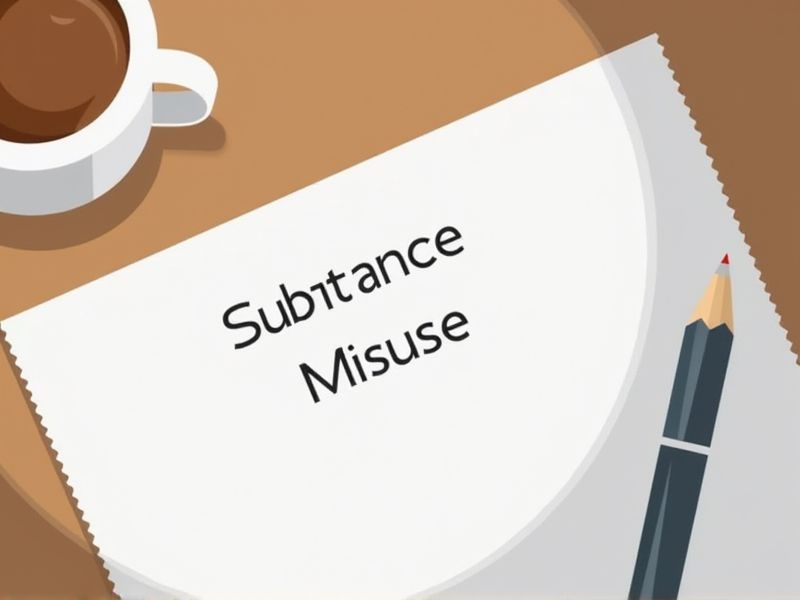
A Substance Misuse Counsellor requires specific certifications to ensure they possess the appropriate skills and knowledge to effectively assist individuals struggling with addiction. The certifications often provide a standardized level of education on addiction's complexities, crucial for understanding client needs. With a focus on evidence-based practices, these credentials enhance the counsellor's credibility and ability to apply therapeutic techniques. Here are some important certifications a Substance Misuse Counsellor may need.
Certified Addiction Counselor (CAC)
The role of a Certified Addiction Counselor (CAC) is vital because they have specialized training in understanding the complex dynamics of substance misuse, providing informed and effective treatment strategies. Their certification ensures they adhere to established ethical standards and best practices, fostering trust and accountability in therapeutic settings. With rising cases of substance misuse, their expertise helps tailor interventions that address individual needs, increasing the likelihood of successful recovery. The structured framework of a CAC also contributes to reducing relapse rates, thus improving overall public health outcomes.
National Certified Substance Abuse Counselor (NCSAC)
Substance Misuse Counsellors benefit from the National Certified Substance Abuse Counselor (NCSAC) credential because it validates their expertise and knowledge, enforcing higher standards within the profession. This certification ensures counsellors are equipped with the latest evidence-based practices, directly improving treatment outcomes for clients. The NCSAC also provides a framework for continuous professional development, which helps counsellors remain current with evolving methodologies in substance abuse treatment. With this certification, the stigma attached to seeking help for substance misuse is reduced, as clients can trust they are receiving care from a qualified professional.
Certified Clinical Alcohol and Drug Counselor (CCADC)
A Certified Clinical Alcohol and Drug Counselor is needed because they possess specialized knowledge in addiction treatment, allowing for more effective interventions. With certification, counselors adhere to established ethical and professional standards, which promotes trust and credibility among clients. The certification process ensures counselors are equipped with up-to-date methodologies and practices in substance misuse counseling. By having a certified counselor, clients receive care that aligns with evidence-based frameworks, increasing the likelihood of successful recovery outcomes.
Licensed Alcohol and Drug Counselor (LADC)
The presence of a Licensed Alcohol and Drug Counselor (LADC) is crucial because their specialized training ensures competent assessment and treatment of substance misuse disorders. Their certification guarantees adherence to evidence-based practices, which enhances the effectiveness of interventions. With an LADC's expertise, programs can better address co-occurring mental health issues that often accompany substance misuse, reducing the risk of relapse. Licensing standards also provide a framework for ongoing professional development, ensuring counselors remain up-to-date with current research and methodologies.
Certified Substance Abuse Counselor (CSAC)
Certified Substance Abuse Counselors (CSAC) bring specialized training and knowledge in recognizing the complexities of addiction, which enhances the effectiveness of counseling sessions. Their certification ensures adherence to professional and ethical standards, which is crucial for maintaining trust and delivering quality care. Having a CSAC means leveraging evidence-based approaches tailored to individual needs, improving recovery rates. They also act as a bridge to connect individuals with supportive resources, fostering a comprehensive treatment plan.
Certified Peer Recovery Specialist (CPRS)
Substance misuse often leaves individuals feeling isolated, and Certified Peer Recovery Specialists (CPRS) use shared experiences to foster a sense of belonging and understanding. The specialized insights of CPRS bridge the gap between clinical expertise and personal recovery journeys, offering a more holistic support system. Data suggests that incorporating CPRS in treatment programs enhances client engagement and retention, addressing common barriers like mistrust or stigma. Programs utilizing CPRS report improved outcomes in long-term recovery rates, highlighting their vital role in effective substance misuse counseling.
Motivational Interviewing Certification (MIC)
Earning a Motivational Interviewing Certification (MIC) equips substance misuse counselors with evidence-based techniques to effectively engage clients in behavior change. The certification ensures counselors possess skills in active listening and empathy, which can enhance the therapeutic alliance and improve treatment outcomes. A well-implemented MI approach can reduce resistance and ambivalence in clients, leading to increased motivation for recovery. Certification in MI also provides counselors with structured methodologies, contributing to more consistent and effective interventions.
Certified Mental Health Counselor (CMHC)
Individuals struggling with substance misuse often have underlying mental health issues, making the expertise of a Certified Mental Health Counselor (CMHC) crucial in addressing both concerns simultaneously. The CMHC's training provides them with a deep understanding of mental health disorders, enabling them to identify and treat issues that may be driving substance use. A specialized approach from a CMHC can enhance recovery outcomes by integrating therapeutic techniques to manage mental health symptoms. Recognition of these intertwined issues results in personalized treatment plans, ultimately reducing relapse rates and improving long-term wellbeing.
Crisis Intervention Certification (CIC)
Possessing a Crisis Intervention Certification (CIC) equips substance misuse counselors with essential skills to effectively manage acute psychological and emotional distress in clients. This certification ensures that counselors can implement evidence-based interventions that stabilize situations and prevent escalation. Data indicates that trained crisis intervention professionals enhance safety and therapeutic outcomes during a client's critical moments. Integrating CIC into practice supports a comprehensive approach, fostering resilience and long-term recovery in individuals struggling with substance misuse.
Trauma-Informed Care Certification (TICC)
Trauma-Informed Care Certification (TICC) equips substance misuse counsellors with the necessary skills to understand and address the trauma often underlying addiction, improving treatment outcomes. Understanding trauma's impact helps counsellors create safer environments, reducing re-traumatization risks for clients during sessions. This certification also enhances counsellors' ability to identify trauma symptoms, facilitating more effective and personalized treatment plans. Evidence suggests that integrating trauma-informed approaches increases clients' engagement and retention in treatment programs.
Summary
Once you obtain certifications as a Substance Misuse Counsellor, your credibility and expertise will likely enhance, attracting more clients seeking professional support. Certifications provide a structured framework to tackle complex cases, leading to more effective client outcomes. With recognized credentials, your career opportunities may expand, opening doors to advanced positions or diverse counseling environments. Your confidence in handling diverse substance misuse scenarios generally increases, improving job satisfaction and client trust.
